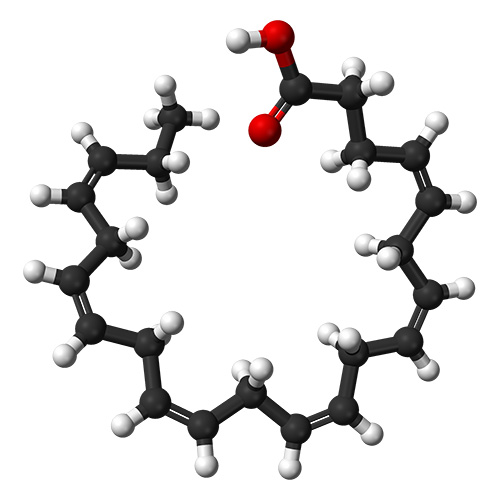
Study links DHA with diabetic retinopathy
Diabetic retinopathy, or DR, is a leading cause of blindness that occurs when blood sugar blocks the tiny vessels that supply blood to the retina. Researchers know that docosahexaenoic acid, or DHA, an omega-3 fatty acid found in the eyes in high concentration, supports eye and vision health, but do not yet fully understand its relation to DR.

In a recent functional study, researchers at the University of Illinois at Chicago examined the correlation between DHA levels and the development of diabetic retinopathy. Sugasini Dhavamani, a research assistant professor, and Poorna Chandra Rao Yalgala, a researcher, led the study.
“We showed for the first time that reduced retinal DHA levels in humans and mice models of diabetes,” Dhavamani said.
The team determined DHA levels, activity and function in the retina using gas chromatography–mass spectrometry, optical coherence tomography and electroretinography, respectively. They found that DHA levels in mice that were genetically modified to have diabetes were 9% to 11% and in diabetic humans were 8% to 10%, whereas DHA levels of nondiabetic mice and humans were 15% to 18%, meaning they observed a 40% to 50% reduction of DHA in diabetic mice and humans.
The observed difference correlated with variations in the levels of fatty acid elongation, metabolism and inflammation markers. The researchers also reported reduced retinal thickness and function in diabetic mice and humans.
While oily fish is a major dietary source of DHA, clinical trials with fish oil have not improved visual function. “This is due to the specificity of blood–retinal barrier that is incompatible with the specificity of the intestinal barrier,” Dhavamani said.

The researchers previously tested whether this limitation could be overcome using a lysophospholipid form of DHA to improve retinal function. They found that it is possible to increase retinal DHA by almost 100% in a normal adult mouse with a low dose of lysophosphatidylcholine-DHA.
The UIC team believes this form of DHA could be used therapeutically to prevent or mitigate retinal dysfunction associated with diabetes and Alzheimer’s disease, as well as age-related macular degeneration. Moreover, it could pave the way for a safe, cost-effective nutraceutical strategy to prevent diabetes-associated visual sensitivity decline in a majority of the population.
Details
Sugasini Dhavamani will present this research from 4:30 to 5:30 p.m. CDT on March 25, at Discover BMB 2024, the American Society for Biochemistry and Molecular Biology annual meeting in San Antonio. Her poster is at Board 191.
Abstract title: DHA deficiency linked to diabetic retinopathy progression in experimental animal models and patients with diabetic mellitus — a novel finding.
Enjoy reading ASBMB Today?
Become a member to receive the print edition four times a year and the digital edition monthly.
Learn moreGet the latest from ASBMB Today
Enter your email address, and we’ll send you a weekly email with recent articles, interviews and more.
Latest in Science
Science highlights or most popular articles

The data that did not fit
Brent Stockwell’s perseverance and work on the small molecule erastin led to the identification of ferroptosis, a regulated form of cell death with implications for cancer, neurodegeneration and infection.

Building a career in nutrition across continents
Driven by past women in science, Kazi Sarjana Safain left Bangladesh and pursued a scientific career in the U.S.

Avoiding common figure errors in manuscript submissions
The three figure issues most often flagged during JBC’s data integrity review are background signal errors, image reuse and undeclared splicing errors. Learn how to avoid these and prevent mistakes that could impede publication.

Ragweed compound thwarts aggressive bladder and breast cancers
Scientists from the University of Michigan reveal the mechanism of action of ambrosin, a compound from ragweed, selectively attacks advanced bladder and breast cancer cells in cell-based models, highlighting its potential to treat advanced tumors.

Lipid-lowering therapies could help treat IBD
Genetic evidence shows that drugs that reduce cholesterol or triglyceride levels can either raise or lower inflammatory bowel disease risk by altering gut microbes and immune signaling.

Key regulator of cholesterol protects against Alzheimer’s disease
A new study identifies oxysterol-binding protein-related protein 6 as a central controller of brain cholesterol balance, with protective effects against Alzheimer’s-related neurodegeneration.

